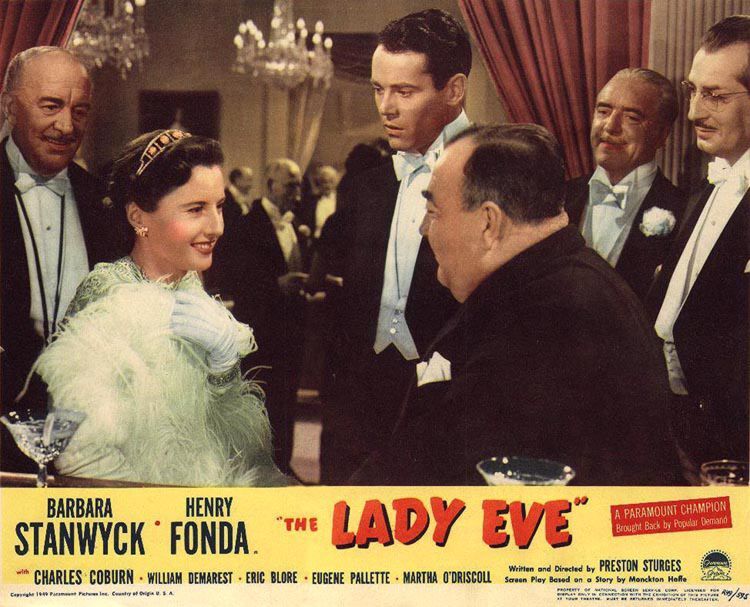The Lady Eve (1941) is a marvelous romantic comedy, meaning that while watching it one has to sit back in awe that such a movie exists. Hyperbolic? Maybe. But here we’re delving into the realm of fantasy and I’ll carry a bit of that spirit into my review.
Why isn’t this movie talked about more?
Henry Fonda plays Charles Pike, the raw-boned and slightly gawky heir to brewery fortune. Thing is, he hates beer and loves snakes. In fact, he’s been in South America researching them along with his bodyguard Muggsy (William Demarist). Why does Charles need a keeper? Because this isn’t the stone-cold Fonda we know from the westerns, but a character who is more than a little naive. Muggsy, while worldly-wise, unfortunately isn’t the sort of person anyone can take seriously and is always ignored. He’s a glib, gruff, Cassandra.
Speaking of women…
Among Charles’ fellow passengers on the ocean liner is Jean (Barbara Stanwyck), her father Harry (Charles Coburn), and their butler/spy Gerald (Melville Cooper). They’re con artists, and Charles is an easy mark. They know it. Muggsy knows it. Charles hasn’t a clue. The story is largely driven by Jean and early on the story shifts to her perspective as she watches all the pretty girls on the boat attempting to catch the eye of the handsome, young heir. She does this from a distance, using a mirror and narrating the exchanges with wicked humor, revealing to us as much about herself as Charles.
When it’s time to make her move, she doesn’t use a coy trick (that’s for later).
She sticks out her foot and trips him.
And he falls right into her net.
Like Fonda, when we think of Stanwyck we tend to think of someone with a heart that runs more ice water than affection. But she could do tender comedy (see also: Christmas in Connecticut) and here she’s working with material specifically written for her. Jean quickly falls in love in Charles, and he with her, and she has to work double-time to keep him from getting taken at cards. Fortunately, she’s as clever at slight-of-hand as her father and knows all his tricks. All Charles wants, of course, is to be a decent fellow. But eventually he learns the undeniable truth and in a surprising turn cuts Jean to the core.
The thread of desire doubles back from ill-gotten financial gane and romance to revenge.
What I love most about what writer/director Preston Sturges does with this movie is that it doesn’t seem plotted (it is, very carefully). It simply feels like he allows the character’s motivations to move in an upward direction until the movie’s runtime and dramatic needs call for a sudden drop. Then all he needs to do is reunite the lovers in the most difficult, yet entertaining way, possible. And he wasn’t afraid of using physical comedy to color his sharp dialog and familiar story.
Charles falls over a couch, ends up with dinner in his lap, and a tray of drinks on his head.
But before all that, Jean and Harry run into another grifter, Alfred (Eric Blore), who just happens to be toying with the Pikes. In order to exact her revenge, Jean poses as Alfred's British niece, Lady Eve. All it takes to convince Charlie she’s someone else is a bad accent, a story about a coachman named Harry and an illegitimate daughter who looks just like her sister. Muggsy is pretty sure it's the "same dame." Charles falls for it hook, line, and applecore. Jean plots to marry him as Eve and then break his heart just as he broke hers.
Hilarity ensues, but I won’t spoil any more.
As Roger Ebert notes, the brilliance of the movie is that it all seems so effortless. But as we’ve recently seen with dreck like Anyone But You, crafting a truly clever romantic comedy must be a labor, even if it is of love. And Sturges didn’t lift from Shakespeare but did something so original even The Bard might have sat back in awe and a smile on his face.

























